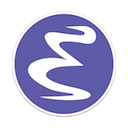This page is not created by, affiliated with, or supported by Slack Technologies, Inc.
2016-06-15
Channels
- # admin-announcements (7)
- # alda (1)
- # aws-lambda (1)
- # beginners (12)
- # boot (20)
- # cider (59)
- # cljs-dev (4)
- # cljsrn (69)
- # clojure (232)
- # clojure-austin (3)
- # clojure-austria (1)
- # clojure-belgium (2)
- # clojure-canada (3)
- # clojure-dev (16)
- # clojure-greece (33)
- # clojure-nl (4)
- # clojure-quebec (12)
- # clojure-russia (12)
- # clojure-spec (27)
- # clojure-uk (38)
- # clojurescript (29)
- # community-development (7)
- # component (53)
- # core-async (16)
- # core-logic (1)
- # datascript (7)
- # datomic (11)
- # editors (7)
- # emacs (69)
- # hoplon (157)
- # keechma (1)
- # lambdaisland (2)
- # lein-figwheel (31)
- # leiningen (8)
- # mount (3)
- # off-topic (11)
- # om (23)
- # onyx (64)
- # planck (2)
- # re-frame (18)
- # reagent (21)
- # specter (118)
- # untangled (145)
- # yada (1)
I use it only on my laptop. I guess that it would make sense if I had a remote machine where I could run the daemon
But the problem is that now the Emacs thing in my dock is always on. Which I don’t really mind, but you can no longer start Emacs from that icon.
i prefer to click cmd+space or just cmd when I am on ubuntu and use keyboard to find what i need
Hrm, just noticed. When I do emacsclient -c file.ext it opens an Emacs instance immediately but it blocks the terminal
emacsclient -n -c file.ext will not block the terminal.
-n, --no-wait Don't wait for the server to return-nw will open a new emacs "frame" on the current terminal, in other words it connects to your running emacs
so we can share a (terminal) emacs, but I can still edit the same buffers with the GUI if some keybinding stuff isn't cooperating in the terminal
except when recording screencasts 🙂 then I have one frame with the episode script, and one frame that I record
usually helps me keep them separated in my head, as they tend to have many files with the same name
since we’re on the topic of frames, i have this in my initializer (set-frame-font "Monaco-16" nil t)
but it doesn’t set the font for frames launched with emacsclient -nc, until i eval it, and then it works fine for subsequent frames.
>(set-frame-font FONT &optional KEEP-SIZE FRAMES) > If FRAMES is non-nil, it should be a list of frames to act upon, > or t meaning all existing graphical frames.
There are ways to set default frame parameters, including font, that apply to all frames
But what I do is this: (set-face-attribute 'default nil :font "SourceCodePro Medium")
malabarba: Thanks. I did read that, but the behavior I see is that it DOES apply to future frames, once eval’ed explicitly.
I use
(setq default-frame-alist '((font . "Source Code Pro-13"))I asked the exact same question here a few months back 🙂 https://clojurians-log.clojureverse.org/emacs/2016-04-29.html
> zzamboni 18:13:31
> @plexus: I always use customize-face and choose default, from which most other faces inherit
;; Keep emacs customize settings in separate file
(setq custom-file (expand-file-name "emacs-custom.el" user-emacs-directory))
(load custom-file)
that way emacs-custom.el contains everything that's configured through customized. otherwize it adds that to .emacs/init.el which I'm not a fan of
